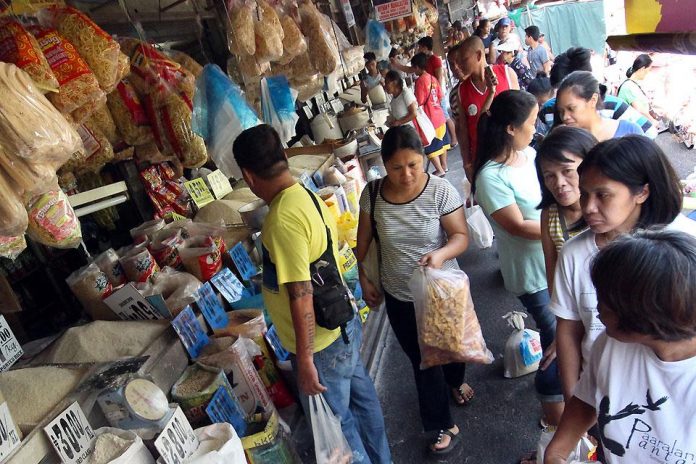
MANILA – Malacañang on Tuesday vowed to monitor the prices of basic goods and services as inflation slowed down from 5.1 percent in December 2018 to 4.4 percent in January this year.
Presidential spokesperson Salvador Panelo welcomed this development, citing the “strong and decisive action” of President Rodrigo Duterte in addressing conditions that contributed to inflation.
“The Palace is pleased with the good news that for the third straight month, inflation continues to drop, registering at 4.4 percent in January 2019,” Panelo said in a statement.
“Last year, soaring prices caused by uncontrollable factors, tested our will as a nation. Not disheartened nor cowed, we rose to the challenge as a people,” he added.
Panelo, meanwhile, assured that the Duterte administration will continue to carry out measures to make Filipinos feel the effects of slower price increases and live a more “comfortable life.”
”With inflation further tapering down to a 10-month low of 4.4 percent, this administration will oversee and ensure that its consequent effects at the market would be felt by the ordinary consumer,” Panelo said.
“We will remain on guard in monitoring the prices of basic goods and commodities as we aim to mitigate poverty and hunger, driven by the President’s economic goal to lay down and build the foundation to a comfortable life for the present and future generations,” he added.
The Philippine Statistics Authority (PSA) attributed the slowdown in inflation mainly to the slowdown in the annual increment of food and non-alcoholic beverages at 5.6 percent, from 6.7 percent in December 2018.
It added that slower price increases in food and non-alcoholic beverages, alcoholic beverages and tobacco, and transport contributed to the slowdown in inflation.
National statistician Lisa Grace Bersales said inflation dropped despite the implementation of the second fuel excise tax hike under the Tax Reform for Acceleration and Inclusion (TRAIN) Law as many gasoline stations have yet to include the excise tax for January.
The second package of the TRAIN Law imposes an additional P2 for every liter of diesel and gasoline, P1 for every liter of kerosene, and P1 for every kilogram of cooking gas or liquefied petroleum gas. (PNA)







